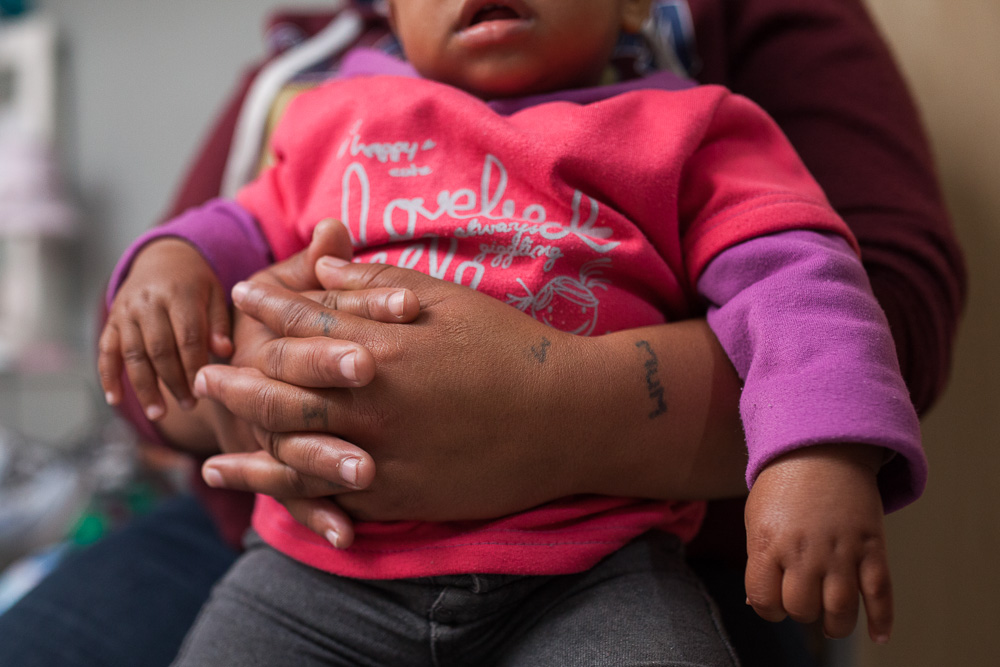Concerns raised by Gauteng government’s move to take over adoption services
In 2022 the High Court found the Department of Social Development’s conduct “unlawful”

Concerns have been raised over the Gauteng social development department’s plans to take over adoption services in the province. Archive photo: Ashraf Hendricks
- The Gauteng Department of Social Development is pushing ahead with plans to take over adoption services in the province.
- The department says it will no longer pay salaries of social workers at adoption organisations.
- Two women took the department to court in 2022, claiming to have been bullied and harassed by the department’s social workers.
- The court declared government’s national adoption guidelines unconstitutional and criticised the Gauteng department’s conduct. The department has appealed the ruling.
The Gauteng Department of Social Development plans to take over adoption services from non-profit organisations. This is despite a 2022 high court ruling, which the department is currently appealing, that found the conduct of the department’s social workers “unlawful” and the national adoption guidelines unconstitutional.
In a memo sent in April to child protection organisations in Gauteng, the department says it will no longer be paying salaries for adoption social workers at non-profit organisations.
“Designated [Child Protection Organisations] charge a fee and therefore are able to financially support and sustain the [adoption] service,” it said.
According to the memo, the department has 58 social workers providing adoption services and is therefore “in a position to offer adoption services free of charge”.
In response to our questions, department spokesperson Themba Gadeba claimed that “some organisations … sell children for an arm and a leg to international couples or individuals”.
Gadeba said the state will provide the service free, “to ensure that children are not sold and the service not be commercialised”, and to prevent “human trafficking”.
However, a director of a child protection and adoption organisation in Gauteng, speaking to GroundUp anonymously for fear of repercussions, said that fears about organisations “commercialising” adoption services are overblown.
Adoption services are governed by the Children’s Act, which makes provision for both the government and non-profit organisations to provide adoption services.
The Children’s Act permits fees to be charged for adoption services. The fees are highly regulated, said the director. For inter-country adoptions, for example, an organisation is not allowed to charge more than R35,000. This limit has been in place since 2012 and has not gone up while the costs incurred by the organisation have increased with inflation.
Fees go towards paying salaries and administrative costs and because the services are provided by non-profit organisations, any surplus funds go back into the organisation.
Our source added that some of the legal work involved in adoption is highly specialised, and raised doubts about the department’s ability to provide an efficient adoption service that meets the legal requirements.
Gadebe, the department’s spokesperson, told GroundUp that the department is mandated by the Children’s Act to provide adoption services and is “capacitating itself” to take over adoption services.
Court ruling against the department
In 2022, the Gauteng High Court ruled that the national adoption guidelines, which had been implemented in Gauteng and several provinces, were “unconstitutional”. The case was brought by two single women, represented by Women’s Legal Centre, who said they had been harassed and unfairly treated by the Gauteng Department of Social Development.
The national and provincial social development departments have since appealed the ruling, and it is yet to be heard.
The two women who brought the case to the High Court said that they had been harassed and bullied by the social workers at the department. Among their complaints were that the social workers refused to process their adoptions for “cultural reasons” and that the social workers threatened to inform their parents of their pregnancies, even though they had requested that this be kept confidential.
In one case, social workers interrogated a woman about her plans for adoption and lodged an investigation, effectively blocking the adoption.
Even after the woman went to the Children’s Court, which ordered the department to issue the required documents to finalise the adoption, the department refused.
Judge Fiona Dippenaar found that the guidelines went “beyond what is legislated and are inconsistent in significant ways with the Constitution and the Act”.
The judge said that voluntary consent to adoption by the biological parents was all that was required. There was no provision for any “investigation” or that family members must be consulted or give consent when the mothers were older than 18.
Judge Dippenaar said that the department “has adopted a pattern of conduct” that is impacting the adoptions of vulnerable children. She ordered that the conduct of the social workers be brought to the attention of the South African Council for Social Service Professions.
GroundUp understands that little has changed since the court case. The social workers were never referred to the council and the adoption services in Gauteng are still under the same management as at the time of the court case.
Support independent journalism
Donate using Payfast

Don't miss out on the latest news
We respect your privacy, and promise we won't spam you.
Next: Race to find 48 trapped construction workers
Previous: At last, Ma Rosey can feed the 30 children in her care
© 2024 GroundUp. This article is licensed under a Creative Commons Attribution-NoDerivatives 4.0 International License.
You may republish this article, so long as you credit the authors and GroundUp, and do not change the text. Please include a link back to the original article.
We put an invisible pixel in the article so that we can count traffic to republishers. All analytics tools are solely on our servers. We do not give our logs to any third party. Logs are deleted after two weeks. We do not use any IP address identifying information except to count regional traffic. We are solely interested in counting hits, not tracking users. If you republish, please do not delete the invisible pixel.
